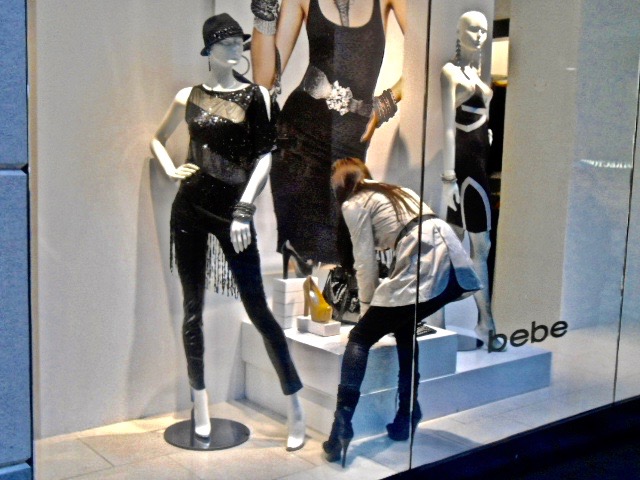 Philip Kobylarz, The Fashionistas, Photograph
Philip Kobylarz, The Fashionistas, Photograph
UNEARNED GRIEF
Almost fifty years later I think of you
the one who wasn’t
the one who couldn’t
how can I grieve a child
whose life I chose to take
I think you were a girl
you would be forty-nine this month
the month of April where the earth
is reborn and crocuses flame yellow
in late spring snow
we would take your kids
to the beach, shrieking delight
as icy waves licked our toes
build fires and make s’mores
fingers sticky sweet
we would shop for clothes
almost the same size
(OK, me a little rounder)
laughing at a too tight skirt
a too revealing shirt
a ridiculous hat
then find the perfect shoes
and each buy a pair
we would share stories and recipes
the sweet and the sorrow
the almosts and the could have beens
my old eyes wet with memories
that I don’t deserve
___________
Claire Scott
Review by Zeke Sanchez
The poem is ostensibly a simple message already defined for you in the title itself. A woman in the late phase of her life is grieving, imagining the child she could have had. Apparently, it was not that she decided she would not have children. Instead, the images are those of a woman having ended the life already coming to be, a willful choice to END the life of her child. In the current political atmosphere times when the subject of “free choice” or abortion is fraught with both fact and innuendo, one can only say what the poem “seems” to mean at this particular time. Beyond that, the poem is an allusive layering of pain, of loss, of regret, of longing. It is as if that child did come into being in the depth of the woman’s love, of her determination to imagine strongly and belatedly what that child would have meant to her life today. For this I deeply appreciate that Claire Scott wrote this heartfelt evocation.
I especially like these lines imagining her daughter turning forty-nine, and shopping with her mother:
the month of April where the earth
is reborn and crocuses flame yellow
The poem as a whole is well written.
Review by Philip Kirsch
This poem is so moving and powerful because the poet’s craft in building the could-have-been memories of the “could have been” now-grown child (“find the perfect shoes”) and grandchildren (“your kids…shrieking delight”) is so sincere and precise:
we would shop for clothes
almost the same size
(OK, me a little rounder).
I could move down the poem quoting many more deft descriptions of imagined interactions, which climax somehow in the magical sharing of “the almosts and the could have beens” with “the one who wasn’t”; but suffice it to say they are plentiful, and the magic is real.
I would only argue with the title, that a grief so considered in regret is surely “earned.”
Review by Jared Pearce
While it’s probably not right or true to believe that the past we imagine would have been if we had made certain, different choices would be full of love, we certainly do play that game with time and choice. For me, the poem’s ending calls itself into question, the grief finally not coming as an imaginary golden era, but as the current, real sum of choices, the weeping for a consideration and a realization all at once.
